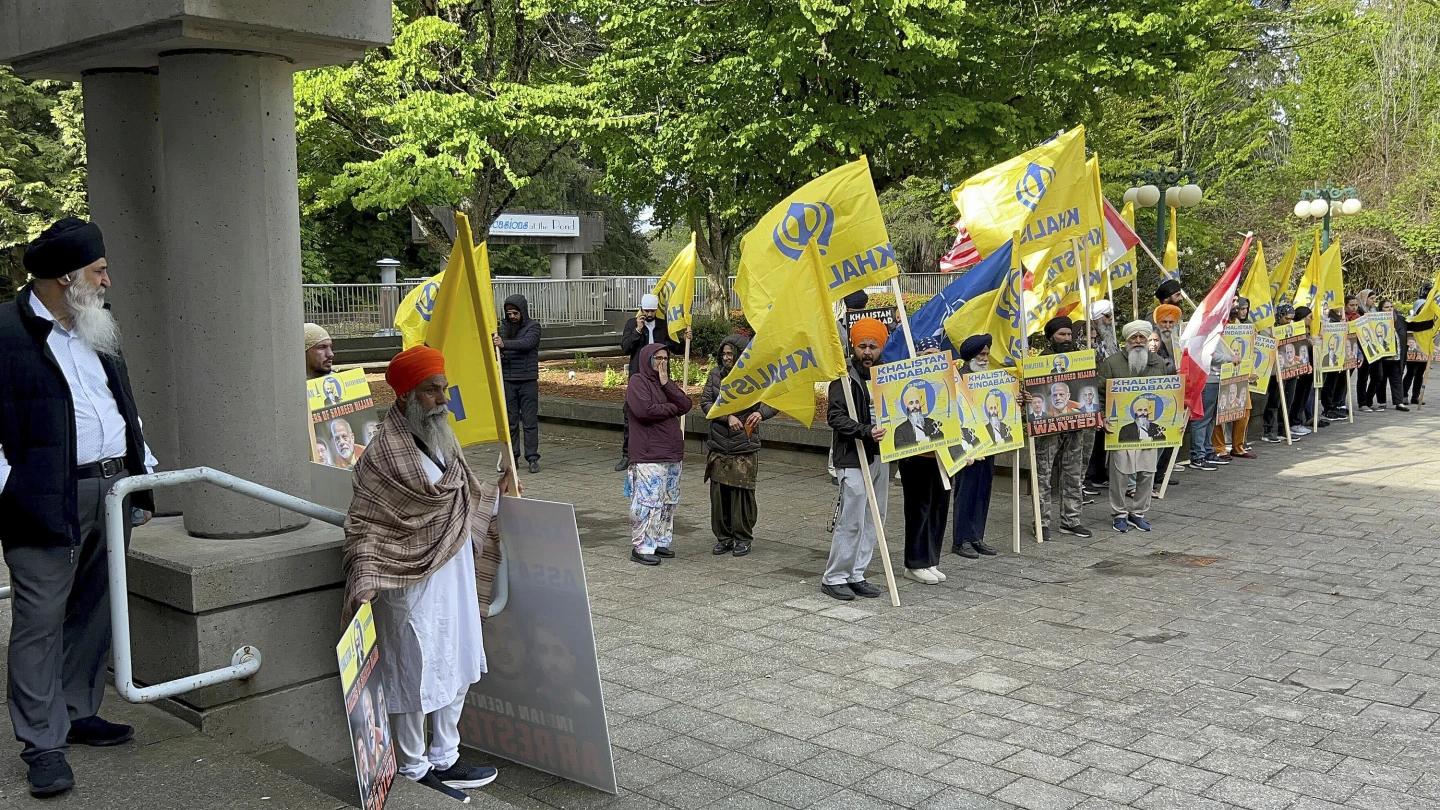Three Indian men charged with killing Sikh separatist leader Hardeep Singh Nijjar in British Columbia last year have appeared in court in the case that set off a diplomatic spat after Canadian Prime Minister Justin Trudeau said there were “credible allegations” of Indian involvement.
Canadian police had arrested the three Indian men last week in Edmonton, Alberta, and they have been charged with first-degree murder and conspiracy to commit murder.
Canadian Mounted Police Superintendent Mandeep Mooker said Friday that the investigation into whether the men had ties to India’s government was ongoing.
Nijjar, 45, was shot to death in his pickup truck last June after he left the Sikh temple he led in the city of Surrey. An Indian-born citizen of Canada, he owned a plumbing business and was a leader in what remains of a once-strong movement to create an independent Sikh homeland. India designated him a terrorist in 2020 and at the time of his death had been seeking his arrest for alleged involvement in an attack on a Hindu priest.
India has denied involvement in the slaying. In response to the allegations, India told Canada last year to remove 41 of its 62 diplomats in the country. Tensions remain but have somewhat eased since.
The arrested men — Kamalpreet Singh, 22, Karan Brar, 22, and Karanpreet Singh, 28 — appeared in court Tuesday via a video link and agreed to a trial in English. They were ordered to appear in British Columbia Provincial Court again on May 21.
Brar and Karanpreet Singh appeared in the morning. Kamalpreet’s appearance was delayed until the afternoon as he waited to speak to a lawyer.
The small provincial courtroom was filled with spectators during the morning session. Others crowded into an overflow room to watch the proceedings via video.
Richard Fowler, the defense lawyer representing Brar, said the case will eventually be moved to the Supreme Court and combined into one case.
About 100 people gathered outside the courthouse waving yellow flags and holding photos of Indian government officials whom they accuse of being involved in Nijjar’s killing.
Canadian police say the three suspects had been living in Canada as non-permanent residents.
A bloody decadelong Sikh insurgency shook north India in the 1970s and 1980s until it was crushed in a government crackdown in which thousands of people were killed, including prominent Sikh leaders.
The Khalistan homeland movement has lost much of its political power but still has supporters in the Indian state of Punjab, as well as in the sizable overseas Sikh diaspora. While the active insurgency ended years ago, the Indian government has repeatedly warned that Sikh separatists were trying to make a comeback.

